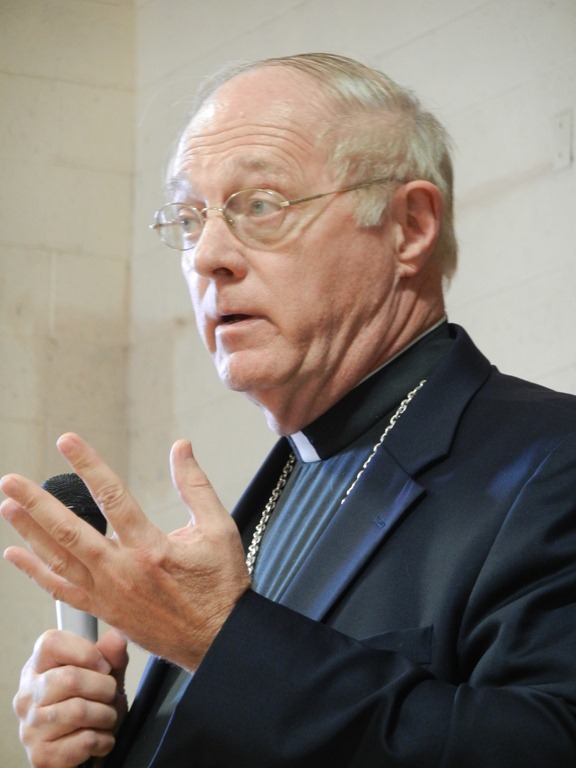 Oh, to be sure, modern day Gnostics are not exactly the same as the Gnostics of the first century but they are clearly kissing cousins. We live in an age in which there has been a massive revival of the Gnostic dualism of the material and the spiritual with the material clearly being bad and the spiritual being that which really matters. Except today we call it spiritual but not religious. This represents an attempt to strip man from his body, from any hint that flesh and spirit form a sacred and God-given identity, or that the flesh is any more than raw material to be shaped as the spirit desires. In this heresy, the incarnation is at best an irrelevant detail and at worst a downright embarrassment. And the outcome of the faith is hardly new flesh but the eternal release from all things fleshly -- the ultimate freedom.
Oh, to be sure, modern day Gnostics are not exactly the same as the Gnostics of the first century but they are clearly kissing cousins. We live in an age in which there has been a massive revival of the Gnostic dualism of the material and the spiritual with the material clearly being bad and the spiritual being that which really matters. Except today we call it spiritual but not religious. This represents an attempt to strip man from his body, from any hint that flesh and spirit form a sacred and God-given identity, or that the flesh is any more than raw material to be shaped as the spirit desires. In this heresy, the incarnation is at best an irrelevant detail and at worst a downright embarrassment. And the outcome of the faith is hardly new flesh but the eternal release from all things fleshly -- the ultimate freedom.Gnosticism is at least in part responsible for the current fixation on gender confusion. As the gnostics hold, no one's identity is permanently tied to what you see in the mirror. Instead, your identity is really who you are on the inside! The physical body therefore can be manipulated by estrogen or testosterone to achieve the desired end, mutilated and butchered by surgery to create the look you feel is really you, and even changed as often as is necessary to keep up with the ever evolving spirit. For the body is merely a container, a vehicle, a space to contain the real person, the spirit. So, if, for example, an accident of birth creates a conflict between the body and the spirit, you know which must be changed. The body is, in this case, a restrictive cage in which the real person is trapped and therefore the most noble course is to break open the cage and free the spirit. This is the gnosticism of our age. In this Gnosticism, the real person is no longer the whole person -- the embodied soul -- but the enslaved soul whose evil material body has become a prison.
Marriage becomes, in Gnosticism, the pursuit of a soulmate, a person with whom you have a spiritual tie or complementarity. It certainly cannot be about bodies that fit together, the love that flows from God's own creative love and produces new life, or the merging of two lives into one flesh. Nope, there is no organic unity to marriage, only a spiritual complementarity. God forbid we should even begin to talk about love that sacrifices, suffers, or puts another before self. None of that works in an individualized view of the spirit in which freedom from sacrifice, suffering, or deferment to others is the key to it all.
I could go on but the danger here is that Christians have heard this Gnostic heresy so often from the world that they have incorporated this false duality into their own thinking. It is certainly understandable. After all, it makes it much easier to reconcile Christianity to the zeitgeist and to find accommodation with culture. But the problem here is that Christ is not he Savior whose incarnation, suffering, and death redeem anything or anyone but He becomes instead the emissary of the great but distant divinity who enables us to find the path to the freedom from the flesh (material).
Maybe the folks I encounter are just different but I am finding more and more people who claim to be Christian but who believe this spiritual but not religious idea, who do not find reincarnation incompatible with the faith, who are friendly to the idea that Christianity is true but not in an exclusive sense, and who really do not understand what is the big deal with same sex marriage, transgenderism, and every other kind of sexual trend (or perversion) -- since it is just sex, just the body, and it is all good if it is consensual (the spiritual permission to use the body as you may desire). These are the ones who seem to be as connected to their tattoo artist as their pastor/priest and who view the body, as with everything else in life, as a canvas for self-expression.
There are no new heresies. Only the same old ideas hashed and rehashed as if recycling were not simply about what to do with our empty water bottles but the same noble pursuit of old ideas who have some abiding value (even if they cannot save).


















